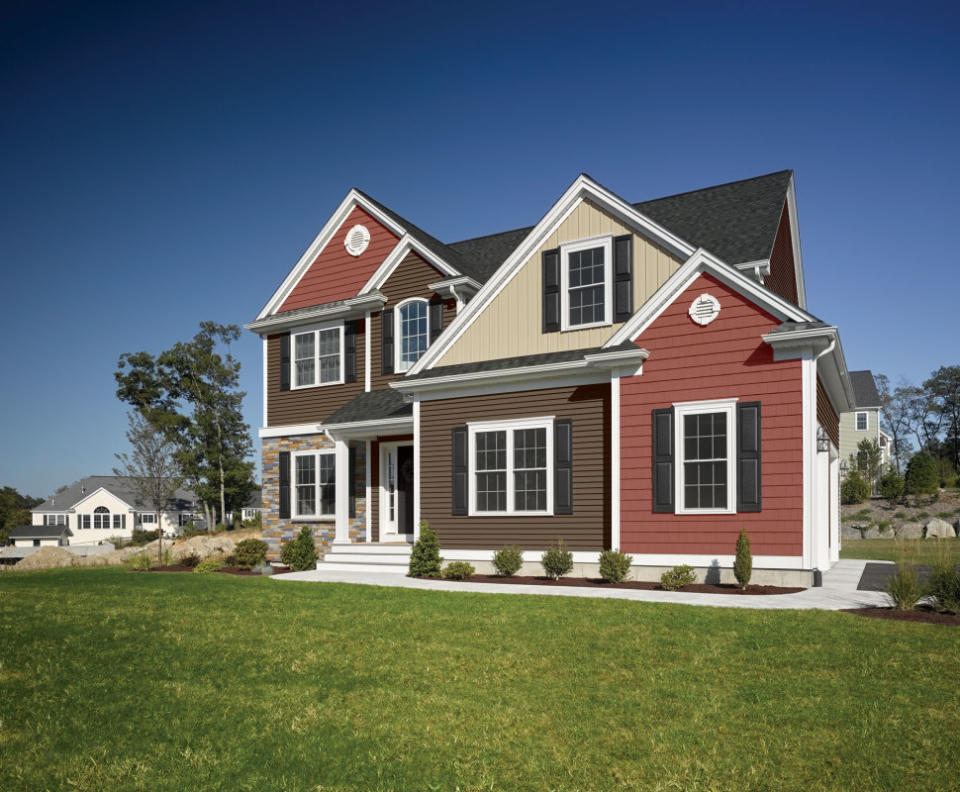Increase Your Home’s ROI With These Unexpected Investments
How much do you consider return on investment when scoping remodeling costs? Whether you're looking to get your money back in today's housing market or you just have an eye on the future, these home improvement projects can boost your home's value in the eyes of prospective buyers.
We recently covered the importance of return on investment (ROI) when it comes to buying or building a tiny home, but what can you be doing to enhance your ROI if you have no intention of downsizing? CertainTeed covered the topic in its recent U.S. Industry Trend Report. The report cites the top home updates that consumers focus on when focused on improving the ROI of their home (and surprise-surprise, there are no kitchens and bathroom remodels on the list):
34% focus on roofing
21% prioritize solar roofing systems
20% improve building insulation
14% focus on siding
10% on exterior trim

CertainTeed
This data mirrors the insights we reported on in late 2023, when Jon Bostock, a former GE executive and current CEO of Leaf Home shared that homeowners were increasingly focused on 'home hardening' features that protect against extreme weather, including state-of-the-art windows, better insulation, and improved roofing and gutter systems. Smart home technologies are also a consistent trend, as they integrate with modern appliances and systems to help users save energy.
"Upgrading a home with energy efficiency and the exterior aesthetics in mind will create a strong return on investment in today’s market," shares Joe Christensen, Owner of Cardinal Crest; Kansas City, Missouri., "A high-performance, energy-efficient home provides the benefits of comfort and long-term investment, as the home will keep value over time."
The survey goes on to share that the surveyed consumers and trade professionals agree that being mindful about energy updates, weatherproofing with durable materials, and updating curb appeal have a great impact on a homeowner's return on investment.
Related: Kitchens and Bathroom Renovations Used to Sell Homes—Not Anymore
Benefits of an Energy-Efficient Home
Overwhelmingly, consumers are focused on energy efficiencies in tandem with ROI. Like never before, builders and buyers are interested in investing in features and materials that will last longer, work harder, and mitigate environmental damage.
1. Improved All-Season Comfort
Energy-efficient homes maintain consistent temperatures, shielding occupants from discomfort during scorching summers or chilly winters. Enhanced insulation and efficient systems develop a more pleasant living environment year-round, irrespective of external weather extremities.
2. Long-Term Financial Savings
You can significantly slash utility bills by opting for materials and systems that reduce energy consumption. Investments in insulation, energy-efficient appliances, and renewable energy sources like solar and geothermal translate to substantial long-term savings. These cost-effective measures not only benefit homeowners financially but also contribute to a sustainable future by reducing overall energy demand.
Related: Starter Home = Forever Home? This New Trend is Driven By Interest Rates
3. Access to Incentives and Rebates
Many local and Federal government programs offer incentives, tax credits, and rebates to homeowners who invest in energy-efficient upgrades—from windows to high-efficiency HVAC to electric cars. These financial incentives offset the initial costs of implementation, making energy-efficient improvements more accessible and affordable for homeowners.
4. Improved Durability
Energy-efficient homes are often built with high-quality materials and construction techniques, resulting in greater durability and reduced maintenance requirements. Energy-efficient appliances and systems also tend to have longer lifespans, minimizing the need for frequent repairs and replacements.
Related: This Company’s Eye to Sustainability Starts With Solar—And it Comes With a New Look
5. A Healthier Space to Call Home
Energy-efficient homes promote better indoor air quality by minimizing pollutants and allergens. Proper ventilation and air filtration systems help to reduce respiratory problems and allergies, creating a healthier living environment for occupants.
6. Environmental Sustainability
Consume less energy and mitigate climate change and other environmental issues by choosing energy-efficient building materials and products.

